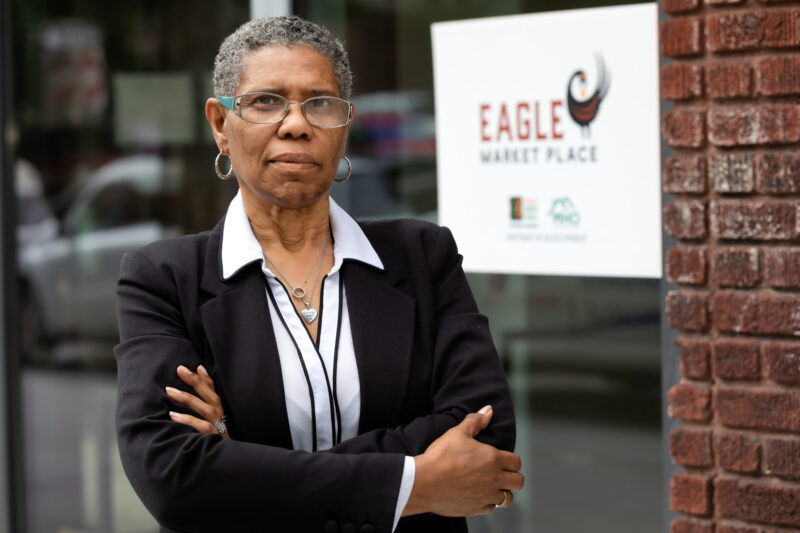If you want to make a difference in the world, it just got easier and simpler to do. With the launch of the Economic Justice marketplace in North Carolina, people can give to bridge the racial wealth gap. Everybody can do this; white people can begin to repair economic injustices.
For a donation of as little as $25, you, your congregation, and your friends can give to a fund that has shown it can help Black sole proprietors grow their businesses and become job creators.
The wealth gap is a stark reality in America. Black families have an average of $14,000 in net assets, compared to $140,000 for the average white family. Because of that gap, Black entrepreneurs usually can’t raise “friends and family” money to grow their businesses. That’s why 90% of Black-owned businesses remain sole proprietors, lacking the resources to grow and become job creators. With these funds, these same businesses can then get money to grow and then secure a loan from a Community Development Finance Institution (CDFI), organizations set up to invest in communitiesn that banks tend to avoid.
In the city of Asheville in Buncombe County, North Carolina, the Community Equity Fund has shown that it can bridge that gap and help the 93% of Black sole proprietors in Buncombe grow, create jobs, and get on the path to creating intergenerational wealth. They can become the missing rich uncles and aunts who will be able to provide friends and family funding to the next generation of Black and brown entrepreneurs.
The Equity Fund has raised more than $3 million dollars and has been incorporated into the budget by Buncombe County for multiple years because it has shown that it is a low cost job creator. Now, that fund is open to the general public on the Economic Justice Marketplace.
Donations to the fund get the standard tax deduction. When the entrepreneurs pay back their investment through sharing in their revenue, starting in the third year, that money is recycled into new investments.
A church gives to invest to become more powerful givers
One church that was an early donor likes the fact that the $5,000 they gave will become $10,000 in five years, when that donation is recycled into the next round of entrepreneurs without anyone having to pass the plate a second time. Giving to invest makes them more powerful givers with no extra effort.
Eagle Market Streets, a non-profit Community Development Corporation (CDC) with a sterling 27-year track record is led by Stephanie Swepson Twitty. She founded the fund and the marketplace. Neighborhood Economics is a co-founder of both the fund and the marketplace through the volunteer work of Kevin Jones, working under Swepson Twitty’s leadership.The next article will tell the stories of two other funds that have launched on the economic justice marketplace. The Watershed Fund provides zero interest loans to small, urban and rural farmers who can’t access traditional capital, and the Repair Fund is focused on repairing the red-lining that causes white neighborhoods to pay lower property taxes than comparable Black neighborhoods.

